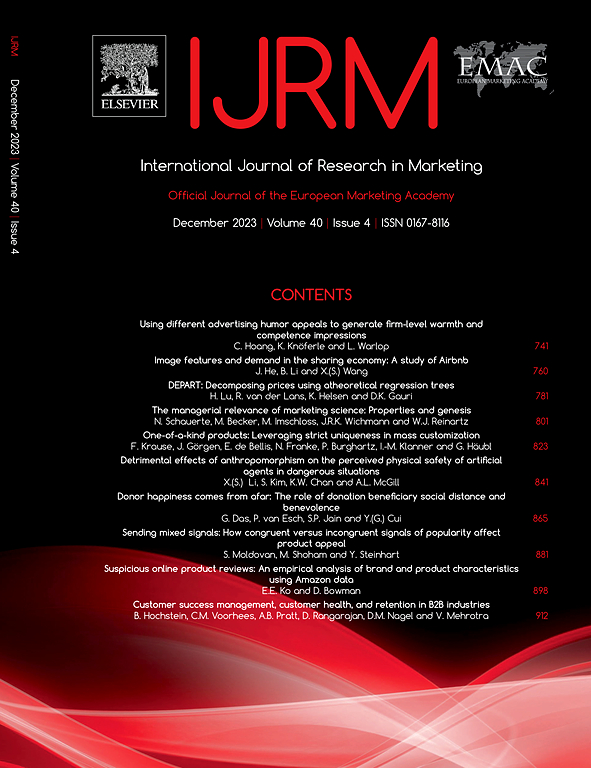Estimating the effect of brand beliefs on brand evaluations when beliefs are measured with error
Abstract
We consider the internal validity of estimates of the effects of brand beliefs on brand evaluations when beliefs are measured with error. Consumer research suggests numerous errors that may impact belief measures. However, the literature has not determined precisely why and how myriad types of error matter for the evaluation-belief relationship. Furthermore, the literature has not explicitly considered what is necessary and sufficient to control for different types of belief error when using the latent general factor approach. We show that the important distinction for empirical research is not the origin of the error per se but its relationship to affective evaluation. Error related to brand evaluation has an inflationary effect on estimates of the evaluation-belief relationship while error unrelated to brand evaluation has an attenuating effect. We use a bifactor structural equations model to decompose belief measures into general and specific dimensions. The model uses bias free variation in specific beliefs to identify effects on brand evaluation while controlling for a general belief dimension correlated with evaluation. Compared to models that do not adjust for the bias, estimates of the bias corrected marginal effects are smaller but positive and significant.

 求助内容:
求助内容: 应助结果提醒方式:
应助结果提醒方式:


